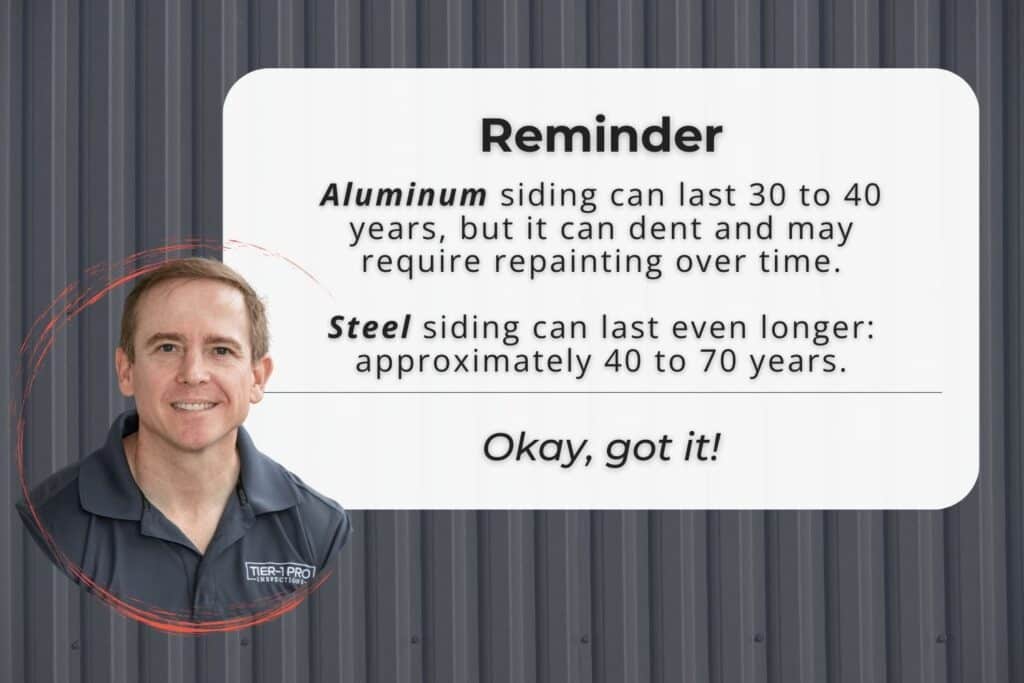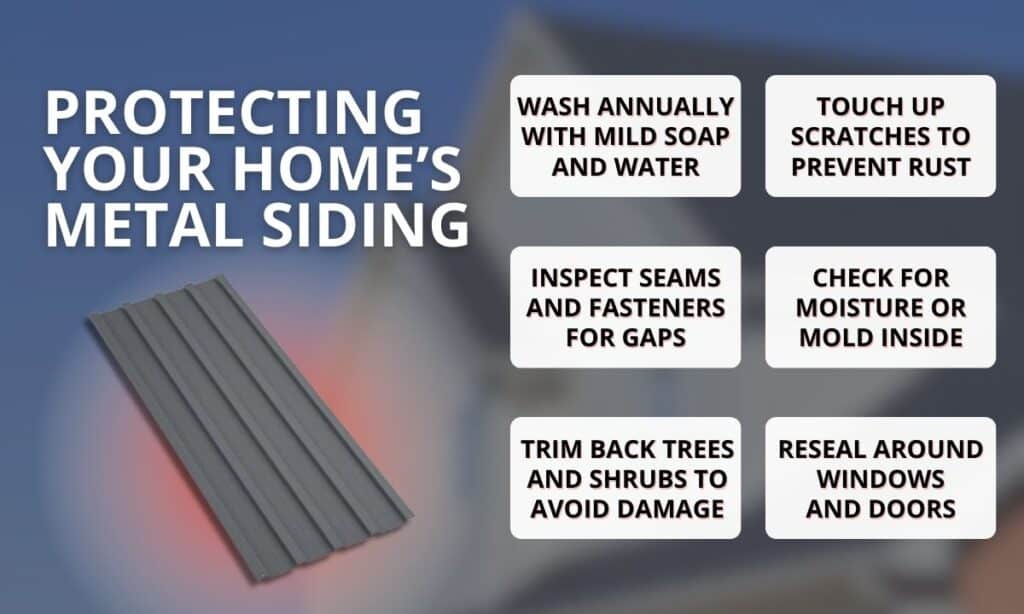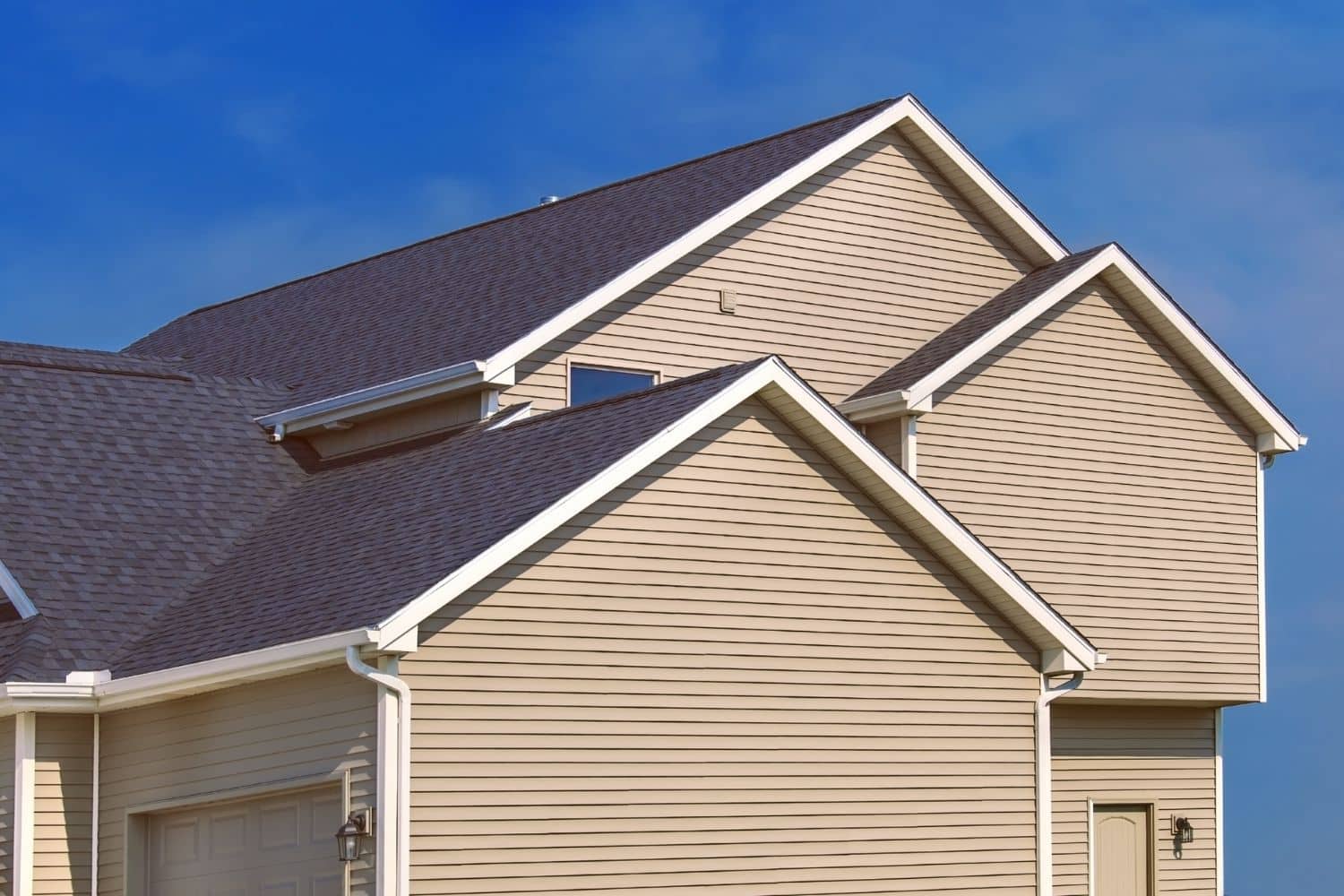Metal house siding is a popular choice across Florida and beyond. Known for its durability and sleek appearance, it protects homes from the elements and adds a modern look. But like every material, metal siding comes with benefits and challenges that matter when you are buying, selling, or maintaining a home.
For homeowners and buyers, knowing what inspectors look for in metal siding can help you make smarter decisions. Here’s what you need to know about how metal siding performs, what issues inspectors often see, and when professional insight becomes essential.
Table of Contents
ToggleWhy Homeowners Choose Metal Siding
Metal siding is designed to last. It is commonly made from aluminum or steel, both of which are resistant to many problems that plague other siding materials.
Some of the main advantages include:
- Durability: Metal siding can last 40 to 70 years when properly maintained.
- Pest resistance: Unlike wood, it does not attract termites or carpenter ants.
- Fire resistance: Steel and aluminum do not burn, offering an added layer of protection.
- Low maintenance: Metal siding does not require frequent repainting or sealing.
- Energy efficiency: With the right insulation, it can reduce cooling costs in hot climates.
These strengths make it an appealing choice for many Florida homes.

Common Issues Inspectors See With Metal Siding
Denting and Physical Damage
Metal house siding can withstand harsh weather, but it is not immune to dents from hail, flying debris, or even lawn equipment. Inspectors often note these as cosmetic issues, though severe dents can weaken panels over time.
Rust and Corrosion
Steel siding is strong, but if the protective coating wears away, rust can develop. Corrosion often starts near seams, joints, or areas where water collects. Aluminum does not rust, but it can oxidize, leading to a chalky appearance.
Loose or Improperly Installed Panels
If panels are not fastened correctly, they may loosen or warp. This can allow water to seep behind the siding, creating potential for moisture intrusion and hidden structural damage.
Moisture Intrusion
Although the metal itself resists water, siding systems rely on proper flashing and sealing. When these fail, water can enter behind the panels and damage insulation, sheathing, or framing. Inspectors pay close attention to edges, corners, and window or door trim.
Noise Concerns
Metal siding can expand and contract with temperature changes, creating popping or creaking sounds. While not always a structural problem, inspectors may note this as a potential nuisance for homeowners.
Signs of Wear Homeowners Should Watch For
Metal siding usually lasts decades, but like any material, it shows wear over time. Some signs to look out for include:
- Discoloration or chalky residue on aluminum
- Rust spots or streaks on steel
- Warping, buckling, or gaps between panels
- Persistent moisture or mold inside the home near siding walls
- Loose nails or fasteners that compromise the system
Catching these issues early can help prevent bigger problems later.
Why Inspectors Pay Attention to Siding
Siding is not just about looks. It is the home’s first defense against weather, pests, and moisture. When siding fails, problems can spread quickly to insulation, drywall, and even the foundation.
During an inspection, siding is evaluated for both function and condition. For metal siding, inspectors consider not just visible wear but also whether it was installed properly and how it connects with other exterior systems like roofing, gutters, and windows.
According to the Metal Roofing Alliance, aluminum siding can last 40 years or more with minimal upkeep, while steel siding often exceeds 50 years. In comparison, vinyl siding typically lasts 20 to 40 years, and wood siding may only last 15 to 30 years, depending on maintenance.
This durability is a major reason homeowners choose metal siding, but its longevity depends on installation quality, exposure to salt or moisture, and ongoing maintenance.

Maintenance Tips for Metal Siding
Metal siding does not require much upkeep, but a few simple steps can extend its lifespan:
- Wash siding annually with mild soap and water to remove dirt and chalky buildup.
- Inspect seams and joints for gaps or loose fasteners.
- Touch up scratches with paint to prevent rust.
- Trim back landscaping to reduce scratching and moisture buildup.
- Check caulking around windows and doors to ensure a tight seal.
These preventive measures help protect your investment and maintain curb appeal.
Other Questions Homeowners Are Asking
Can metal siding improve energy efficiency?
Yes. With proper insulation and reflective finishes, metal siding can reduce heat absorption and help lower cooling costs in hot climates.
Will metal siding increase home value?
It can. Buyers often view metal siding as a premium feature because of its durability and low maintenance. A professional inspection can confirm that it has been installed and maintained correctly.
Does metal siding require special inspections?
Not special, but thorough. Inspectors evaluate siding as part of the full home inspection, checking for corrosion, improper installation, and potential water intrusion.
When to Call a Professional
If you see rust, loose panels, or water damage near your siding, it is important to get a professional opinion. Tier-1 Pro Inspections provides detailed home inspections that include the condition of siding, roofing, and other exterior systems.
Whether you are buying, selling, or maintaining a home, a professional inspection offers peace of mind and helps you plan for any repairs.
Conclusion
Metal house siding is strong, long-lasting, and an attractive option for many homes. Still, it requires proper installation and occasional upkeep to perform its best. Inspectors can spot the early signs of trouble and help homeowners understand what needs attention.
Contact Tier-1 Pro Inspections today to schedule a professional inspection in Central Florida and learn more about the condition of your home’s siding.

